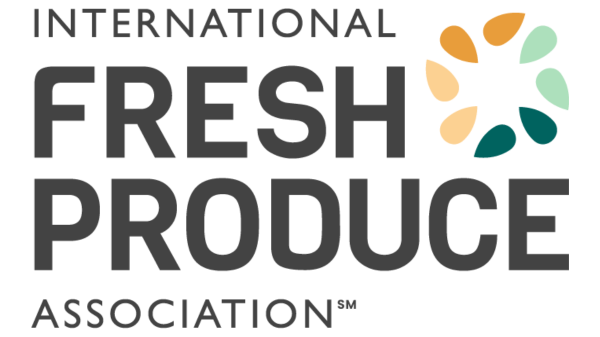Newark, DE. and Washington, D.C. – Support for regulations with flexibility that allow fruit and vegetable growers to manage risks unique to their production environment as well as calls for a final rule were among the key messages delivered by the International Fresh Produce Association’s BB #:378962 food safety and regulatory team during the U.S. Food and Drug Administration’s recent virtual public meetings on proposed changes to agricultural water requirements in the produce safety rule.
During the February 14 meeting, Dr. Emily Griep, IFPA Vice President of Regulatory Compliance & Global Food Safety Standards noted that ensuring the microbial quality of water used to grow, harvest, and pack fruits and vegetables is a complex and critical component of food production.
“We commend FDA for proposing this systems-based approach that not only allows, but expects, growers to account for changes in our understanding of science, testing, and risk mitigations,” Dr. Griep said. “Given that roughly half the fruits and vegetables consumed in the U.S. are imported, and because produce is grown in every region of the U.S., it’s critical that the rule be able to accommodate the very different water sources, uses, and types of risks specific to a grower and region. We appreciate that FDA has proposed a rule that moves away from a one-size-fits-all approach.”
Specific to water testing, Dr Griep shared: “Many produce growers already test their water to satisfy third-party audit requirements, and we don’t expect this to stop. We suggest that growers be allowed to leverage historical testing data that provide insight to their water system, but we also believe that testing for generic E. coli, which FDA proposes as a default, is limiting in some situations, and that the rule, as currently written, ostensibly restricts growers from using more appropriate methods and analytes due to the lack of clarity in how to establish that an alternate method is ‘scientifically valid.’”
IFPA’s testimony also addressed the need for FDA to continue working closely with stakeholders as additional guidance and resources are developed, especially considering the investment industry has made in commodity-specific guidance and other educational resources focused on managing risks related to agricultural water.
During the February 25 meeting, IFPA was represented by Chief Food Safety & Regulatory Officer Dr. Jennifer McEntire on a panel discussion of the provisions, while Director of Food Safety & Quality Gretchen Wall offered additional testimony.
While recognizing that agricultural water is one pathway for foodborne illness pathogens, in the panel discussion Dr. McEntire urged rapid review of comments and FDA finalization of the rule. “Industry and academia need to continue building the knowledge base for water assessments, implement mitigations, and start the education process,” she said.
Dr. McEntire also acknowledged that the current proposal is much more protective of public health, calling the holistic, systems approach to agricultural water “revolutionary” compared to the rest of the Produce Safety Rule. The comprehensive assessment recognizes that “testing is a tool, not an answer”, McEntire noted.
In her testimony, IPFA’s Wall remarked, “Knowledge of how to conduct a risk assessment is needed to determine the real impact (severity) of a hazard; this will be a fundamental shift in thinking for the industry. IFPA is prepared to assist the industry by working with our members, commodity-specific associations, Extension partners, and other stakeholders to develop resources necessary to guide hazard identification and risk assessment.”
IFPA also encouraged FDA to continue working with produce organizations and educational institutions to make effective, accurate, and science-based resources and educational opportunities available.
Wall’s testimony reinforced the need for FDA to reconsider the proposed provisions which allow microbial die-off without corresponding data for appropriate decision-making. The use of a pre-harvest application interval as a mitigation or corrective measure may be appropriate in certain circumstances, but only with support from a robust risk assessment and relevant supporting scientific data, much of which does not currently exist for all commodities or environmental conditions.
In addition, Wall stated “We commend FDA for working collaboratively with EPA towards developing a protocol for reviewing antimicrobial pesticide products for treatment of agricultural water,” she said. “Currently, growers do not have adequate access to registered products to meet the microbial criterion proposed nor has the industry fully addressed the logistical challenges of consistent application of water treatments. IFPA supports a multi-hurdle approach to mitigations and cautions FDA against asserting that water treatment, or any mitigation currently available, is a silver bullet – especially without access to approved products and supporting science.”
Collaborating with FDA and other regulatory stakeholders is a key priority for the IFPA, as it was for its predecessors, United Fresh Produce Association and Produce Marketing Association. When the Food Safety Modernization Act and Produce Safety Rule were first introduced, both organizations collaborated with members to provide feedback via formal comments, helped the industry identify and fill gaps in the science through the support of research funded by the Center for Produce Safety, and educated consumer advocacy groups and industry stakeholders so they understood the regulation’s nuances and intent.
In addition to its participation in these meetings, the IFPA will submit comments based on input from a diverse member workgroup to the FDA docket requesting feedback on the proposed changes to the agricultural water provisions within the FSMA produce safety rule in the weeks ahead.
##
About the International Fresh Produce Association (IFPA)
The International Fresh Produce Association (IFPA)?is the largest and most diverse international association serving the entire fresh produce and floral supply chain and the only to seamlessly integrate world-facing advocacy and industry-facing support. We exist to bring the industry together to create a vibrant future for all. We grow our member’s prosperity by conducting advocacy; connecting people and ideas; and offering guidance that allows us all to?take action?with purpose and confidence.? While IFPA is built on the legacy of United Fresh and Produce Marketing Association, it is not just a combination. It is transformational. Recognizing the industry required an even more powerful and unified voice, the leaders of the former United Fresh and Produce Marketing Association chose not to merge, but rather to create an entirely new organization to supersede their organizations, effective January 1, 2022.



